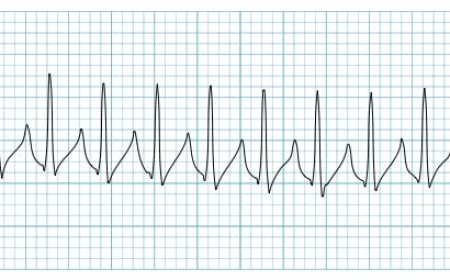Weight Management

Introduction:
Weight management is a critical aspect of maintaining good health and well-being. In India, as in many other countries, the prevalence of obesity and related health issues has been increasing over the years. It is essential to understand weight management, its signs and symptoms, causes, risk factors, different types, and the diagnostic tests and treatments available to address the problem.
Signs and Symptoms:
The signs and symptoms of weight management issues can vary depending on whether a person is underweight, overweight, or obese. Some common signs include:
- Unintended weight gain or loss.
- Changes in appetite and eating habits.
- Low energy levels and fatigue.
- Difficulty breathing or shortness of breath.
- Joint pain and mobility issues.
- Increased risk of chronic diseases like diabetes and heart problems.
What Is Weight Management?
Weight management refers to the process of achieving and maintaining a healthy body weight through a combination of balanced nutrition, regular physical activity, and a healthy lifestyle. It is not just about losing weight but also about maintaining a weight that is appropriate for an individual's age, height, and body composition.
How Is Weight Management Classified?
Weight management can be classified into two main categories:
-
Weight Loss Management: This involves strategies and interventions aimed at reducing body weight for individuals who are overweight or obese.
-
Weight Gain Management: This focuses on promoting healthy weight gain for individuals who are underweight or malnourished.
Causes and Triggers:
Several factors can contribute to weight management issues:
-
Unhealthy Eating Habits: Consuming high-calorie, processed foods and sugary drinks can lead to weight gain.
-
Sedentary Lifestyle: Lack of physical activity and spending too much time sitting can contribute to weight gain.
-
Genetics: Some people may have a genetic predisposition to gain weight more easily.
-
Emotional Eating: Using food as a coping mechanism for stress and emotions can lead to overeating.
-
Hormonal Imbalances: Certain hormonal disorders can affect metabolism and body weight.
Risk Factors with Examples:
Several risk factors can increase the likelihood of weight management issues:
-
Family History: If someone's parents or close relatives have weight problems, they may be more susceptible to it as well.
-
Lack of Physical Activity: Children who spend a lot of time indoors watching TV or playing video games instead of being active outdoors are at a higher risk of weight gain.
-
Fast Food Consumption: Frequent consumption of fast food and unhealthy snacks can lead to weight gain and health issues.
-
Excessive Sugar Intake: Consuming sugary beverages and snacks regularly can contribute to obesity.
-
Medical Conditions: Certain medical conditions, such as thyroid disorders, can affect weight.
Types of Weight Management:
-
Balanced Diet: Eating a balanced diet with all essential nutrients in appropriate quantities is crucial for weight management.
-
Regular Exercise: Engaging in physical activities like sports, dancing, or simply playing outside can help manage weight.
-
Behavioral Therapy: Counseling and support can help individuals address emotional eating and develop healthier habits.
-
Medical Interventions: In severe cases, doctors may recommend medications or surgery for weight management.
Diagnostic Tests and Treatments:
-
BMI (Body Mass Index): BMI is a calculation based on a person's height and weight. It helps identify whether a person is underweight, normal weight, overweight, or obese.
-
Blood Tests: Blood tests can check for underlying health conditions that may be contributing to weight issues.
-
Imaging Tests: Scans like MRI or CT can help assess body fat distribution and identify any abnormalities.
-
Dietary Counseling: Nutritionists can provide personalized diet plans to help manage weight.
-
Exercise Programs: Fitness trainers can design exercise routines suitable for individual needs.
-
Medication: In some cases, doctors may prescribe weight management medications to aid in the process.
-
Bariatric Surgery: This is a surgical option for severe obesity when other methods have not been successful.
Complications of Weight Management and Prevention Techniques:
If weight management issues are not addressed, they can lead to several complications, such as diabetes, heart disease, joint problems, and mental health issues. Prevention techniques include:
- Eating a balanced diet with plenty of fruits, vegetables, and whole grains.
- Limiting sugary and processed foods and beverages.
- Engaging in regular physical activity or sports.
- Managing stress through relaxation techniques and hobbies.
- Seeking medical help for any underlying health conditions that may contribute to weight problems.
Weight management is essential for maintaining good health and preventing various health issues. By adopting healthy eating habits, staying physically active, and seeking medical guidance when necessary, individuals in India and across the globe can achieve a healthier and happier lifestyle. Remember, small steps towards a balanced lifestyle can lead to significant changes over time.
What's Your Reaction?


























































